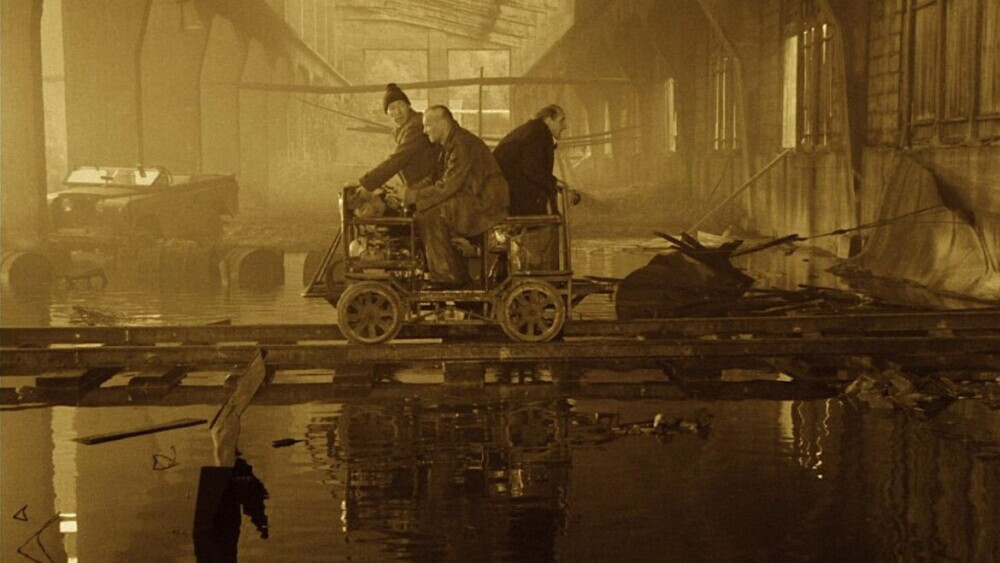5 Absurd Ways Video Games Are Getting Tangled Up In NFTs

Tech bros say that NFTs are the future of art. NFTs are, at best, the future of grifting. At worst, they're the future of the complete annihilation of our environment—albeit in a completely decentralized way!
It sucks that many video game companies are jumping on that bandwagon, but at least we have a bunch of bonkers NFT-related tales that will warm your heart through laughter … while the rest of your body freezes because crypto has rendered energy bills too expensive.
Even The Company Behind The Biggest Environmentalist Game Ever Is Into NFTs Now
First, a quick NFT primer for those of you who've managed to dodge the topic so far. NFTs (non-fungible tokens) are a way of publicly recording who owns what. They were popularized by cryptocurrency investors, who wanted more people to deal in crypto to inflate crypto's value. NFTs are a scam: People willingly pay more for an NFT than they would for the actual associated piece of art because they believe they can resell the NFT for even more, but many buyers won't be able to sell at all.
Don't Miss
Games have no use for NFTs. Video game companies are already perfectly capable of recording who owns what, using normal means, and in fact their whole existing business model depends on that. But companies like selling NFTs for items because customers will pay a lot for them (again: it's a scam). The problem, even for those of us not being scammed, is NFTs consume a ludicrous amount of energy, due to the artificially complicated ways they're authenticated. One transaction might consume as much energy as ten years of you running every appliance in your house.

Square Enix
That brings us to Square Enix. Square's most popular ever title is Final Fantasy VII, a game about leading a group of eco-activists as they prevent the biggest corporation from destroying the world by draining it of resources. Great idea. Too bad Square Enix is now ecstatic about the crypto business as well, as they revealed in a New Year's letter that was less about wishing fans a new year and more about trying to convince fans to betray their beloved characters in favor of a scam.
Though to be fair, it's been over 25 years since the release of Final Fantasy VII. They probably just don't remember ... oh, wait, Square Enix's letter capped off the year that saw the release of the Final Fantasy VII remake.
STALKER 2 Is Being Faithful To Its Source Material In The Dumbest Possible Way
The developers of the once highly anticipated STALKER 2 announced that they would be filling the game with all sorts of NFT "functionalities." That's a sneaky attempt to profit off the game in a manner even slimier than loot boxes. The announcement was met with so much disappointment from the community that the team backpedaled on the idea one day later.
The dev team's whole position sounds even more messed up once you dig a bit into the IP's history. The game series is based on a movie of the same name by Russian filmmaker Andrei Tarkovsky. The film tells the story of a Stalker, a type of dude whose thing is to guide others through a desolate and dangerous zone and into a mysterious place that'll grant their innermost wishes. It's a remarkable film that manages to constantly flash you with images of pure beauty that are somehow always imbued with total dread.

Goskino
The problem is that it went too far in order to reach that objective. You see, instead of using sets and props, they shot in the most awful places they could find. That included sewers..

Goskino
... sepia land ...

Goskino
... and even next to a goddamn chemical factory.

Goskino
That boldness resulted in incredible visuals, but also in the deaths of many of the people involved in the film, including Tarkovsky himself. Don't worry, they didn't die immediately from a freak accident during the shooting. They died shortly after, from horrible diseases.
Okay, NFTs aren't exactly the same as that. But we sure wish the Stalker devs could have seen the similarities between NFTs, a tech that's only groundbreaking in the sense that it's destroying the earth, and a style of filmmaking equivalent to Soviet Jackass.
Peter Molyneux Is Still The God Of Hubris
Peter Molyneux is known for two things: promising the most ambitious games ever and always failing to deliver. You might remember Molyneux from humility simulators such as Black & White, the game where you play as a literal god, or Godus, the game that convinced fans to throw $750,000 at Molyneux in the hopes of getting to play as a god. It has been in development hell early access for 7 years.
Poor guy, maybe his problem for all those years was that we still hadn't come up with a type of technology as untrustworthy as he is! Well, before the end of 2021, Molyneux announced Legacy, an NFT-funded game. We don't know exactly what he means by that, but we know it's the only game of its kind, and, you guessed it, also the most ambitious one of its kind ever! Anyway, Legacy still doesn’t have anything to show for it aside from some formulaic-ass concept shots.

22cans
But because it is what's inside that matters, someone has already spent over $500,000 on the promise of an imaginary plot of land. That's nearly as much as Molyneux got for his previous vaporware sensation, and that's terrible, but it's a mere fraction of the $50 million he's has already managed to make on Legacy NFTs.
Molyneux has stated his dissatisfaction with other cryptocurrency-based games, stating that they're usually more about the blockchain than they're about the game experience. Legacy, in Molyneux's own words, will be about the blockchain, sure, but also about consequences. Well, at least we can't accuse him of not warning us this time.
Nintendo Finally Cracks Down On A Fan Game That Actually Deserved Obliteration
The only thing Nintendo likes more than neglecting beloved franchises is destroying fan projects trying to breathe some life into them. You've made a game that features one of Nintendo's classic characters as a way to deal with years of Nintendo only caring about Zelda and Mario? Too bad, it's cease and desist o'clock—even if your game isn't made for profit. Fans, as well as people who like games in general, know that's not a good practice because many of these projects allow people to play games they wouldn't have access to otherwise.
And yet, one time, Nintendo used their banhammer after the fans themselves called for it. The game in question was made from a mishmash of stolen assets in a half-assed attempt to create a make-money-quick NFT Battle Royale chimera.
The makers, 1-UP Platform, promoted it as an “indie title," as well as a “retro-gaming platform for everyone that uses NFTs as powerups."
Nintendo did short work of it, but you kind of have to excuse 1-UP. Their belief that they could get away with stealing ultra well-known assets from one of the biggest companies in the world and sell them as an “indie” game reveals a level of hubris that would inspire even the likes of Peter Molyneux.
NFTs Blowing Up AND Deflating In The Hands Of Ubisoft
Okay, not everything is terrible—yet.
Shortly before the end of 2021, the spider covenant that composes Ubisoft's upper management announced its giddiness at the possibility of making money via cosmetic NFTs. The public didn't like it. But that was expected. What wasn't expected, however, was a resistance movement emerging from inside the company. While most of the devs sarcastically asked what “problem” this “solution” was for, some others asked whether it'd be worth the extremely negative publicity, and one straight-up asked, “How can you look at private property, speculation, artificial scarcity, and egoism, then say ‘yes this is good, I want that, let’s put it in art?’”
You'd still expect Ubisoft to make a hell of a lot of money out of it. But it just wasn't meant to be.
Up until the minting of this piece, Ubisoft's first venture into NFTs had only made them ... not even $400. Those are great numbers—for us—because one must assume Ubisoft paid a pretty penny for the entire operation, which certainly resulted in the company losing money, not to mention the further destruction of the company's public image.
Top image: THQ
